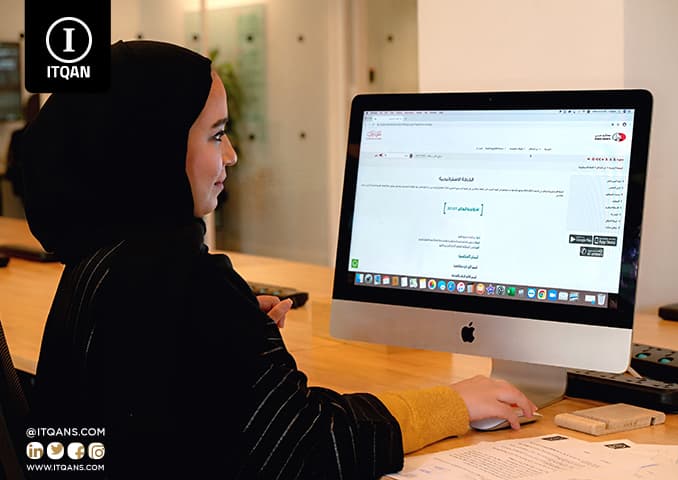How do I deal with employees when establishing my company in the Emirates? The United Arab Emirates is considered one of the most prominent global destinations for establishing companies and doing business, thanks to its advanced infrastructure, strategic location, and open economic policies. Establishing a company in the UAE provides tremendous opportunities for growth and prosperity, whether you are a local or international investor. With an encouraging and transparent business environment, the UAE is an ideal choice for many entrepreneurs and investors seeking to expand their business.
In this article, Opening My Company in the Emirates, we will review the different types of companies that can be established in the Emirates, the legal procedures associated with that, in addition to the advantages and challenges that investors may face. We will also provide practical tips to overcome these challenges, to ensure establishing a successful and sustainable company in this dynamic market.

جدول المحتوى
ToggleTypes of companies to establish a company in the Emirates
When considering setting up a company in the UAE , investors need to understand the different types of companies available and choose the one that best suits their business goals and strategies. Companies in the UAE can be classified into three main categories: local companies, free companies, and international companies. We will review each type in detail below.
-
Local companies
Local companies are companies that are established and operate within the UAE and are subject to local laws and regulations. These companies have full access to the local market, allowing them to take advantage of the business opportunities available in the UAE market. However, local companies must adhere to certain conditions, including that the company must have a local partner who owns a percentage of shares of up to 51% in some cases.
-
Free companies
Free companies are established in free zones spread throughout the various emirates of the country. These free zones grant many benefits to companies that establish in them, such as 100% full foreign ownership, tax exemption for specific periods, and facilitation in customs procedures. Free zones are an attractive option for foreign investors looking to establish companies that benefit from a flexible and competitive investment environment. Some of the most popular free zones include: Jebel Ali Free Zone in Dubai, Abu Dhabi Free Zone, and Sharjah Free Zone.
-
International companies
International companies are those companies that have business operations in more than one country, and include multinational companies that want to use the UAE as a launching point to access the Middle East and North Africa markets. These companies can benefit from the UAE’s strategic geographical location, advanced infrastructure, and open trade policies. International companies require compliance with international and local laws and regulations, and may need to obtain additional approvals to establish their branches or representative offices in the UAE.
Legal procedures for establishing a company in the Emirates
Establishing a company in the UAE requires adherence to a set of legal procedures that ensure the regulation of business operations and ensure compliance with local and international laws. These procedures include several key steps that entrepreneurs and investors must follow to ensure the establishment of a legal and effective company. Below are details of the basic legal procedures:
Commercial registration
Commercial registration is the first and most important step in establishing any company in the UAE. This procedure requires providing a set of necessary documents and documents such as:
- Copy of Passport: Copies of passports of all partners and shareholders in the company must be submitted.
- Business Plan: A business plan must be submitted that explains the project’s vision, goals, and how to achieve them.
- Articles of Association: A legal document that specifies the nature of the company, the partners, the shareholders, and their percentage in the capital.
- Company name: A trade name for the company must be chosen that complies with local laws and regulations.
After compiling these documents, they are submitted to the Department of Economic Development in the relevant emirate to obtain a commercial registration certificate.
Commercial licenses
After obtaining the commercial registration certificate, the company must obtain the appropriate commercial license for the type of activity it intends to undertake. Commercial licenses in the UAE are divided into several types, including:
- Commercial License: Designated for companies that engage in general trade such as buying and selling goods.
- Professional License: Targets companies that provide professional services such as consulting and engineering.
- Industrial licence: granted to companies operating in the industrial and production sector.
The company must apply for the appropriate license, pay the required fees, and then pass any additional checks or requirements that may be imposed by the relevant authorities.
Government approvals
Some types of business activities require approvals from specific government agencies, in order to ensure compliance with the laws and regulations of those activities. For example:
- Health and medical activities: require approvals from the Ministry of Health and local health authorities.
- Tourism activities: require approvals from the Department of Tourism and Commerce Marketing.
- Financial activities: require approvals from the UAE Central Bank.
The company must check all approvals required for its specific activity and ensure that all conditions and regulations related to it are met.

Advantages and challenges of establishing a company in the UAE
Establishing a company in the UAE provides many advantages that make it an attractive destination for entrepreneurs and investors. Among these advantages:
- Stable economic environment: The UAE enjoys a stable and developing economic environment, which contributes to providing a suitable climate for business. This stability helps companies plan for the future with confidence.
- Advanced Infrastructure: The UAE is distinguished by its advanced infrastructure, which includes an excellent road network, modern airports, and international sea ports. This infrastructure facilitates transportation and shipping operations, increasing business efficiency.
- Tax breaks: The UAE offers attractive tax breaks for businesses, including no personal or corporate income tax in many free zones. This reduces operational costs and increases profits.
- Cultural and linguistic diversity: Thanks to the cultural and linguistic diversity in the UAE, companies can benefit from a wide range of skills and knowledge. This diversity fosters innovation and creativity and helps meet diverse customer needs.
- Easy access to global markets: Thanks to its distinguished geographical location, the UAE is considered a major gateway to accessing Asian, African and European markets. This strategic location facilitates export and import operations and enhances global trade.
Challenges
Despite the many advantages, investors face some challenges when establishing a company in the UAE. Among these challenges:
- High initial costs: The initial costs of establishing a company in the UAE can be high, including registration fees, office rental costs, and licenses. Investors must plan well for these costs to ensure business sustainability.
- Intense competition: Given the attractiveness of the UAE market, competition between companies may be intense. This requires companies to provide innovative, high-quality products and services to stay competitive.
- Legal and administrative complexities: Companies may face some legal and administrative complexities when establishing their businesses, especially with regard to obtaining licenses and government approvals. It requires careful monitoring and familiarity with local laws and regulations.
Tips for overcoming challenges
To overcome the challenges that companies may face when establishing their business in the Emirates, the following tips can be followed:
- Good financial planning: It is necessary to prepare a comprehensive budget that takes into account all initial and operational costs. You can turn to financial advisors to help you develop a clear financial plan.
- Research and Development: Investing in research and development can help companies provide innovative products and services, enhancing their ability to compete in the market.
- Compliance with Laws and Regulations: It is important to comply with all local laws and regulations to avoid any legal problems. Lawyers and legal advisors may be used to ensure full compliance.
- Building a strong network of relationships: Building a strong network of relationships with government agencies and local partners can facilitate administrative and logistical operations and enhance the chances of success.
Establishing my company in the Emirates
In conclusion, it can be said that establishing a company in the UAE represents an important strategic step for individuals and ambitious investors looking to benefit from the thriving and diverse business environment in this country. The UAE provides many promising opportunities through different types of companies that meet the needs and aspirations of both local and international investors.
By understanding the necessary legal procedures such as business registration and obtaining the required licenses, investors can ensure that their business is in line with local laws and regulations. Although there are some challenges they may face, the great advantages such as the stable economic environment, advanced infrastructure, and supportive government policies make the UAE an attractive destination for establishing a business.
To overcome potential challenges, it is important to seek the help of experts and lawyers specialized in the field of establishing companies, and to benefit from the advice and guidance provided by government agencies and consulting centers. In this way, investors can avoid obstacles and achieve success and prosperity in their projects.
In the end, establishing a company in the Emirates is not just an economic opportunity, but rather a step towards a bright future in the business world, where all the elements are available that allow investors to achieve their goals and ambitions with ease.
Frequently asked questions about establishing my company in the Emirates
What are free zones and what are the benefits of establishing a company in them?
Benefits include exemption from taxes on companies and profits, full ownership by foreigners, and facilitation of establishment and management procedures.
Can foreigners fully own companies in the UAE?
Yes, foreigners can fully own companies in most free zones. In areas outside the free zones, some commercial activities may require a local partner with a certain percentage of ownership.
What is the cost of establishing a company in the UAE?
The cost varies based on company type, location and legal requirements. Costs include licensing fees, office rent, consulting services fees, and others.
How long does it take to establish a company in the UAE?
The time taken depends on the type of company and the procedures required. It usually ranges from two weeks to one month.
Can I establish a company outside the UAE?
Yes, it is possible to establish a company outside the Emirates by seeking the help of a service agent or legal advisor. They can assist you with incorporation and licensing procedures.
What are the government incentives provided to startups in the UAE?
The UAE government offers many incentives to startups, such as financial support programs, tax incentives, co-working spaces, and training and development programs.
Are there special requirements for hiring employees in the UAE?
Yes, companies need to obtain work permits and residence visas for foreign employees. Employees must be registered with the Ministry of Labor and Social Insurance and obtain work cards.


















